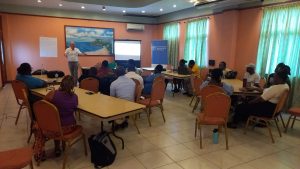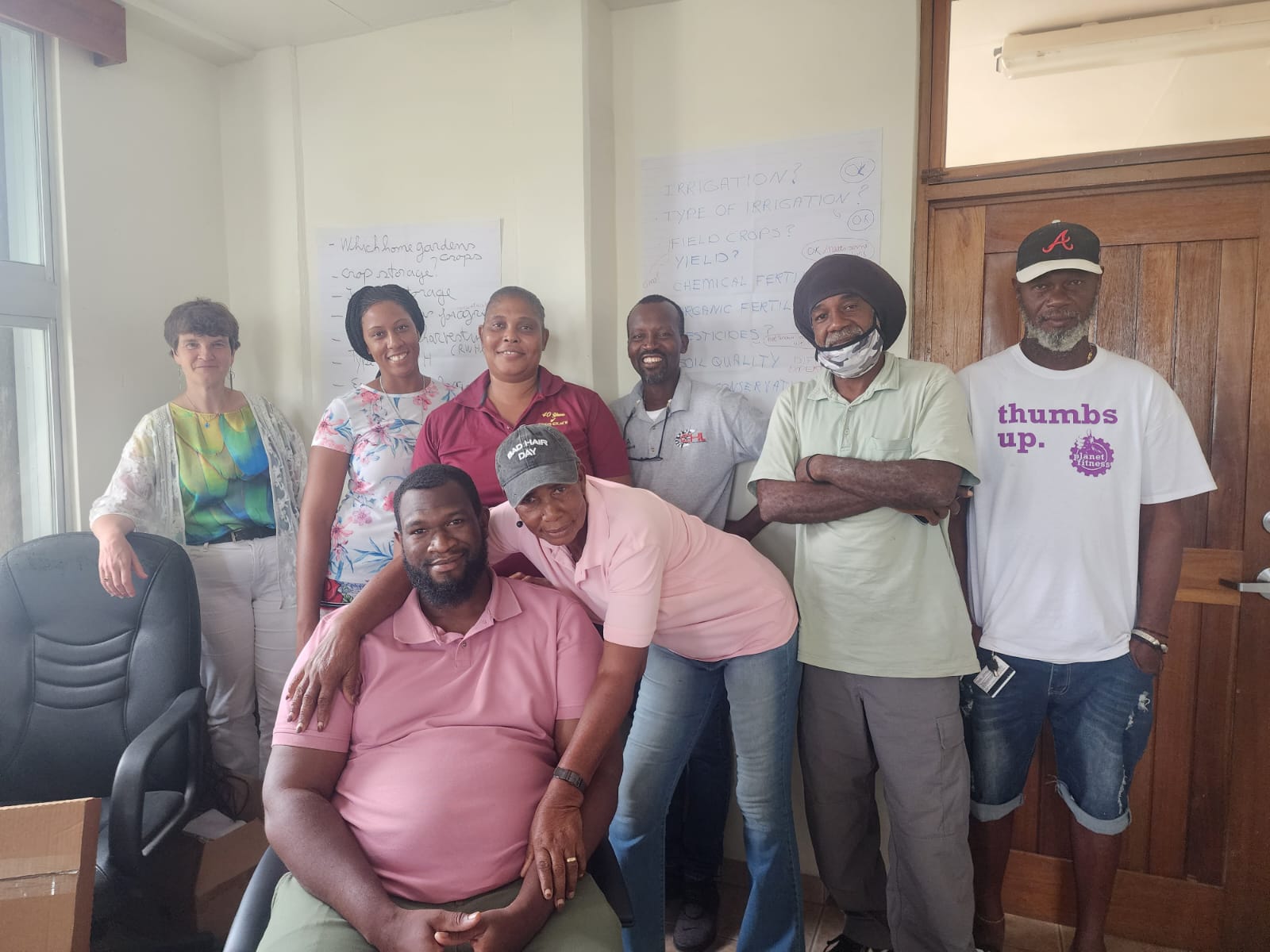The United Nations Food and Agriculture Organisation (FAO) has entered into an
agreement with Free University of the Netherlands to build a monitoring and
evaluation framework, specifically catering to the unique context of the Caribbean.
Antigua and Barbuda is among four Caribbean states that will benefit from the
project. The FAO said the project comes out of the recognition of the importance
of monitoring and evaluating the impact of the water-energy-food nexus
interventions on food security and resource use in agriculture.
The FAO said that to ensure its practical implementation, representatives from
Free University Amsterdam (VU) conducted a series of one-day trainings with
beneficiary farmers, extension staff, and technical officers of the Ministries of
Agriculture, in each of the participating countries of Antigua and Barbuda,
Barbados, Jamaica, and Saint Kitts and Nevis.
Delivered by Dr Lia van Wesenbeeck and Dr Ben Sonneveld, Director, and Deputy
Director of the Amsterdam Centre for World Food Studies, respectively, the
training guided participants through the framework, in the context of increasing
resilience to climate change.
Participants acquired the fundamental concepts of monitoring and evaluation,
gaining an in-depth understanding of the Theory of Change, Key Performance
Indicators (KPIs), and rubrics. This information allowed attendees to be equipped
with the skills to evaluate WEF interventions and business cases. The workshops
served as a valuable platform for the sharing of feedback by farmers and Ministry
staff, ensuring that the M&E tool continually evolves and improves in alignment
with the countries’ needs.

National Project Coordinator at FAO Auriel Horsford-Hunte stated “Having the
training in both Antigua and Barbuda allowed us to share this important
information with all our beneficiaries. In our evaluation of the training, attendees
indicated that the information would be valuable to them in the immediate future.
We look forward to using the framework to continue to document the good work
being completed under the project.”
Agricultural Officer in the Ministry of Agriculture – Ridge Taylor, indicated “The
most valuable factor that I got from this workshop, is the idea of setting up the
rubrics in connection with the theory of change and the KPI so that you can
evaluate your results and the impacts of the project.”
Ministry of Agriculture Senior Technical Officer, Barbuda, supported this view
commenting, “It shows the importance of having technical personnel from the
Council’s side to assist with better data collection, not just for the council, but for
farmers as well. It provides an example for farmers to emulate for their farming
business. The tool is also needed by the Council to create better assessments of
future projects.”


